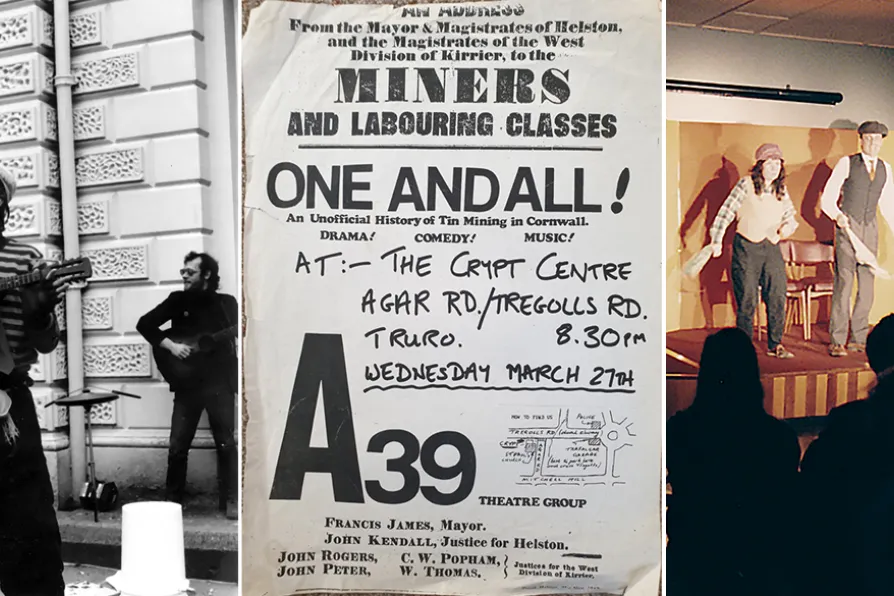SUE TURNER is fascinated by a book that researches who the largely immigrant workforce were that built the Empire State
Political theatre and the Miners’ Strike
DAWN EVANS recommends the memoir of A39, the remarkable Cornish political theatre troupe

 Paul Farmer in a Miracle Theatre street performance, Falmouth, Cornwall, Spring 1984; One & All! poster for A39’s first performance at The Crypt Centre, Truro, March 1985; One & All!–the Tinners’ Jig live at Geevor Mine, days before closure
[George J. Greene/CC]
Paul Farmer in a Miracle Theatre street performance, Falmouth, Cornwall, Spring 1984; One & All! poster for A39’s first performance at The Crypt Centre, Truro, March 1985; One & All!–the Tinners’ Jig live at Geevor Mine, days before closure
[George J. Greene/CC]
After The Miners’ Strike - A39 and Cornish Political Theatre Verses Thatcher’s Britain
Paul Farmer, Open Books, £23.99
Similar stories

Peter Mitchell's photography reveals a poetic relationship with Leeds

This is poetry in paint, spectacular but never spectacle for its own sake, writes JAN WOOLF

RON JACOBS welcomes the long overdue translation of an epic work that chronicles resistance to fascism during WWII

JOHN GREEN surveys the remarkable career of screenwriter Malcolm Hulke and the essential part played by his membership of the Communist Party










